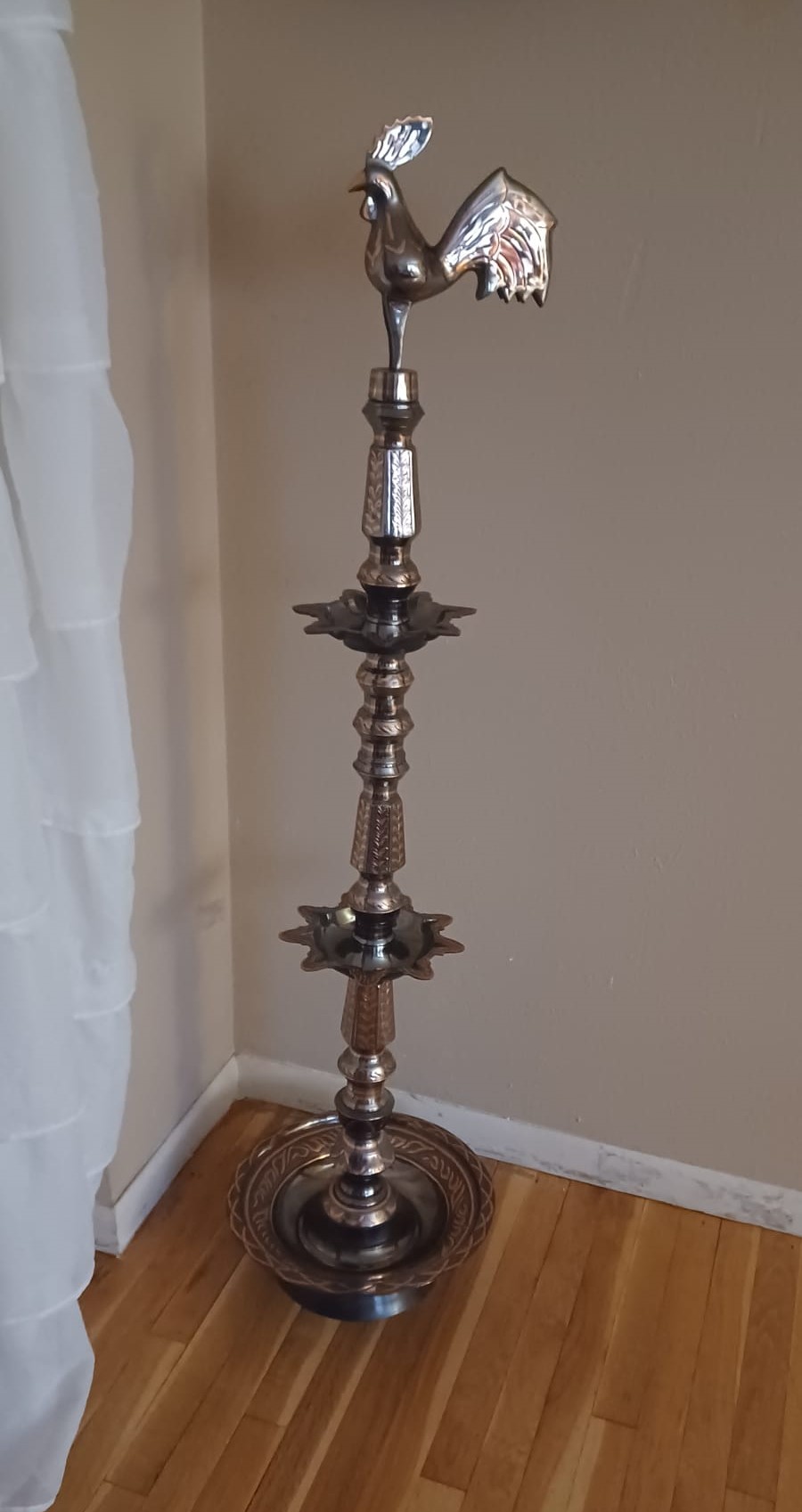குத்துவிளக்கு
Kuththuvilakku (traditional standing oil lamp)
Content note: misreading
A pandit engaged a laborer for an overnight trip. As they walked through the forest at night, they came across a poisonous snake coiled in the middle of the path. Alarmed, the pandit retreated, saying, "Come, we must run!" The laborer said, "Sir, there is no danger here; let us continue along this path." The pandit exclaimed, "Fool, what do I pay you for? Do you not see that snake?" So the laborer complied, and the detour added hours to their journey. In the morning, they returned along the same path and found a coiled rope on the ground where the snake had been the night before. The pandit realized that, in the darkness, he had mistaken the coiled rope for a snake, while the laborer had recognized it for what it was. So thinking, he angrily chastised the laborer, saying, "Why did you not speak of this last night? We wasted many hours for this!" to which the laborer replied, "Sir, I did; it was you who did not hear me."
The darkness of received knowledge and pride makes it difficult to perceive reality as it truly is. Learned scholars and physicians entrenched in their medical training and composition practice are unlikely to penetrate the veil of Maya without humility and rhetorical listening. Having never encountered chronic pain and fatigue and its diasporic-disabled ways of knowing, these pandits do not know they are possible realities. Fearing challenges to their expertise, they close their ears when those with inferior credentials offer alternative interpretations. Thus, Eelam Tamil diasporic pain and its writing ecology appear as the poisonous snake instead of the rope, the horse instead of the zebra.
Keep your lamp lit. Recognize and dismantle your confirmation biases. Humbly keep your ears open. Those hoofbeats may be neither horses nor zebras but sarukumans (chevrotain).
